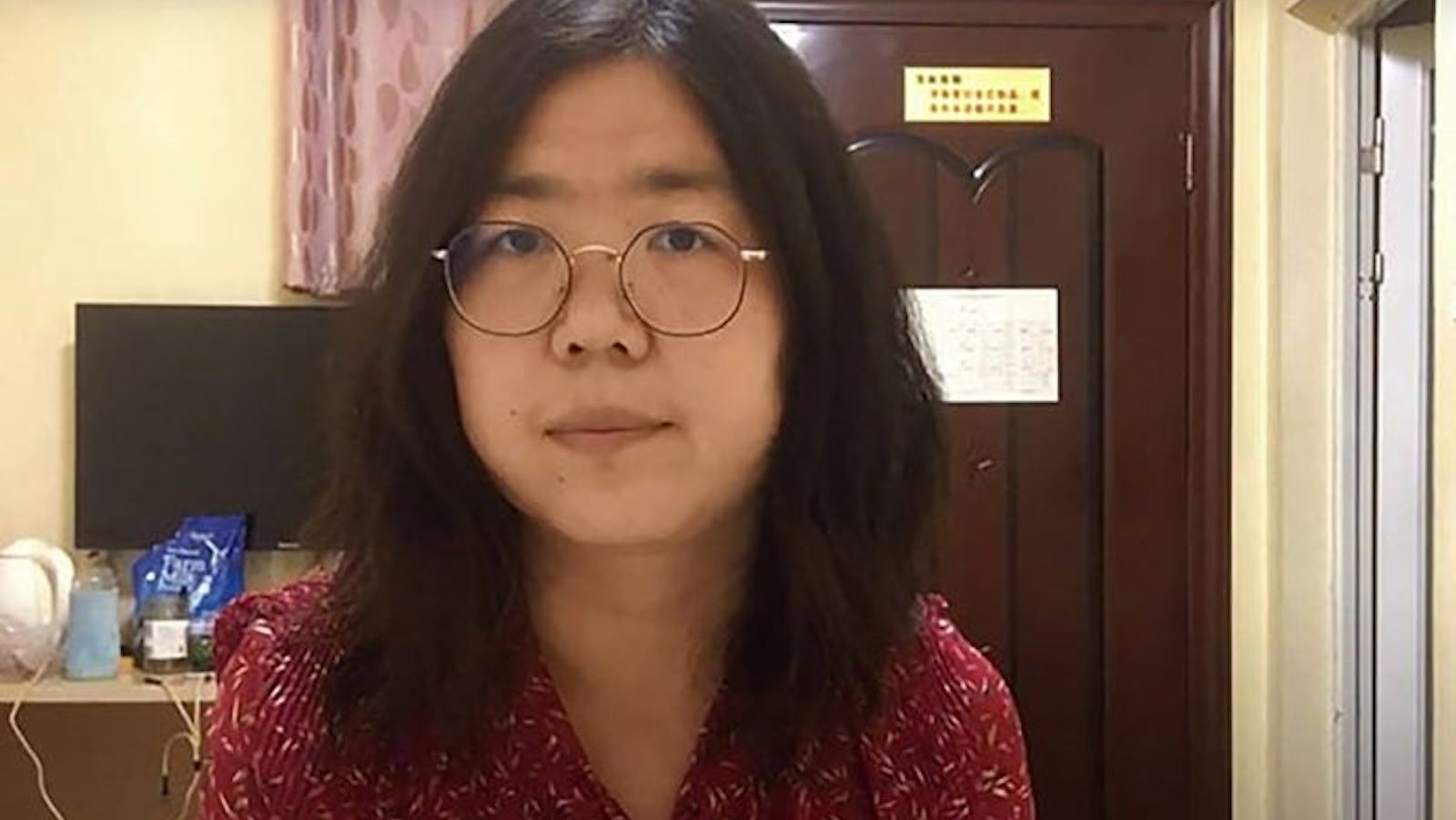(CNN) — Chinese journalist Zhang Zhan, who has been behind bars for four years for reporting on the initial Covid-19 outbreak in Wuhan, will be released this Monday after serving his sentence, according to his supporters and a court ruling.
Zhang Zhan, a former lawyer, was one of the few independent Chinese journalists reporting from Wuhan after the city of 11 million people went into total lockdown, offering a rare, unfiltered look at reality as Chinese authorities impose strict censorship on the media. Coverage.
Zhang was arrested in May 2020 and sentenced a few months later to four years in prison for “inciting riots and trouble,” a charge the Chinese government routinely uses against dissidents and human rights activists.
Zhang will complete his sentence this Monday, according to a court ruling in his case obtained and published by human rights groups.

Chinese journalist Zhang Zhan was sentenced to four years in prison for reporting on the Covid-19 outbreak that began in Wuhan. (Credit: EyePress News/Reuters)
Ahead of his release scheduled for Monday, supporters and human rights groups have called on the Chinese government to release Zhang in a timely manner.
Reporters Without Borders (RSF), which awarded Zhang a press freedom prize in 2021, called on “the international community to press for his unconditional release on Monday” in a post on social platform X this Friday.
In early February 2020, days after the Wuhan lockdown was announced, Zhang traveled about 650 kilometers from Shanghai to the central Chinese city to try to contain and contain the spread of the virus, just as authorities tightened censorship on the Chinese government. and private media.
Over three months, he documented snippets of life in Wuhan and the harsh reality its residents face, from overflowing hospitals to empty shops, as the world grapples with the spread of the virus. He posted his observations, photos and videos on WeChat, Twitter and YouTube, the latter two of which are blocked in China.
“I can't say anything because everything is being covered up. This is the problem this country is facing right now: Any dissent from our side can be labeled as 'rumour',” he said in a video two weeks after arriving in Wuhan. With a mask on his face.
“Even our own voices are beyond our control, imprisoning us and curtailing our freedom in the name of pandemic prevention… If we can't get the truth, if we can't break their monopoly on the truth, the world has no meaning. Us.” We”.
His activities came to an abrupt halt in mid-May, and it was later learned that he had been detained by the police and taken back to Shanghai.
Health problems
Zhang, 40, has staged several hunger strikes since his detention, and his health has raised concerns among supporters and human rights groups. In 2021, Zhang's mother said that her daughter was so weak that she could not lift her head due to lack of strength and that she was in dire need of medical attention.
During an earlier hunger strike, Amnesty International said Zhang was tied to a log and force-fed, a treatment the group said amounted to torture.
China's foreign ministry previously did not respond to CNN's allegations of Zhang's mistreatment while in detention.
In a lengthy statement released in July 2020, the Ministry of Foreign Affairs denied that the Chinese government had cracked down on journalists who had “exercised their right to freedom of expression online” during the pandemic.
“In China, no one is punished or punished for simply expressing an opinion,” the statement said. “The Chinese government has continued to implement its response to Covid-19 in an open and transparent manner, and has achieved widely recognized achievements.”
Zhang was among the freelance reporters who were detained or disappeared at the start of the pandemic, as Chinese authorities clamped down on coverage of the virus and focused on Beijing's effective and timely response.
According to Reporters Without Borders, China has the world's largest prison of journalists, ranking 172 out of 180 countries in the world.
Authorities tightly control the press in their country and block most foreign media through the Great Firewall, their vast online censorship and surveillance apparatus.

:quality(85)/cloudfront-us-east-1.images.arcpublishing.com/infobae/BH6NLAQGXJGADFWTENBUV7Z7RQ.jpg)
:quality(85)/cloudfront-us-east-1.images.arcpublishing.com/infobae/3GK63ATFOMFAYNUAQKUL4WUJFM.jpg)

:quality(85)/cloudfront-us-east-1.images.arcpublishing.com/infobae/SJ35ZLSJ5NB4BWVRJPSK74P7AQ.jpg)